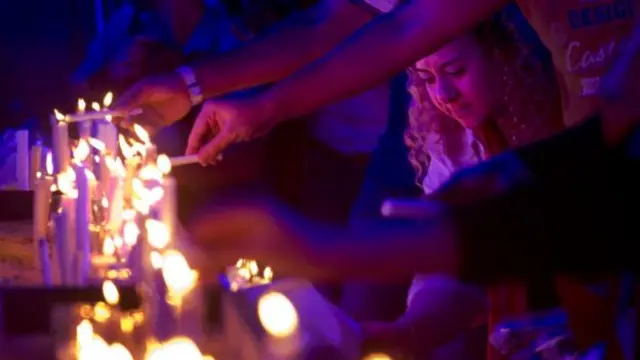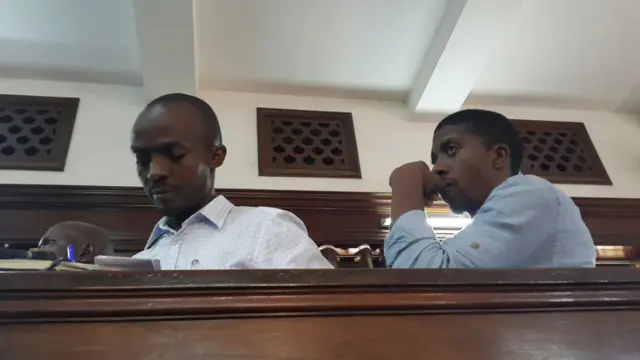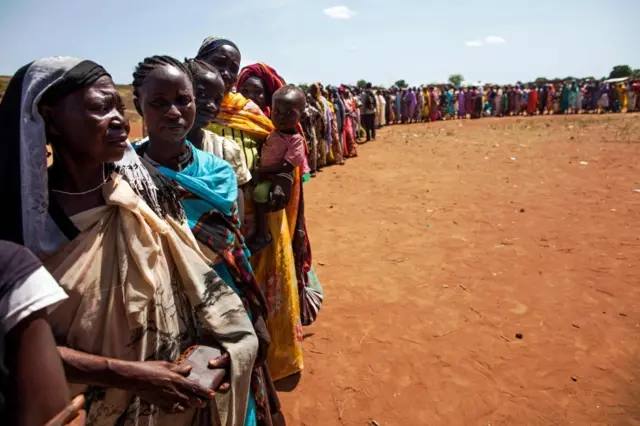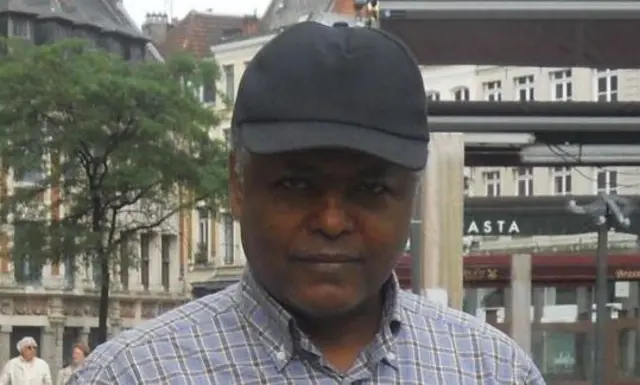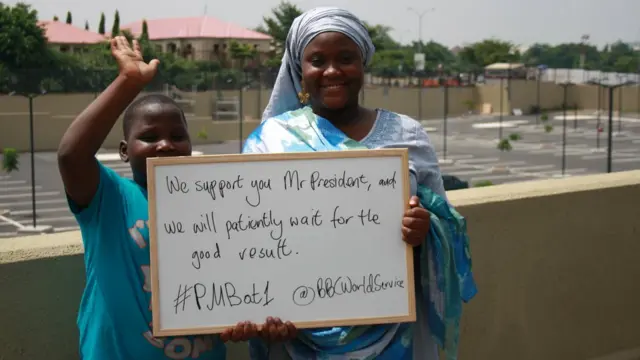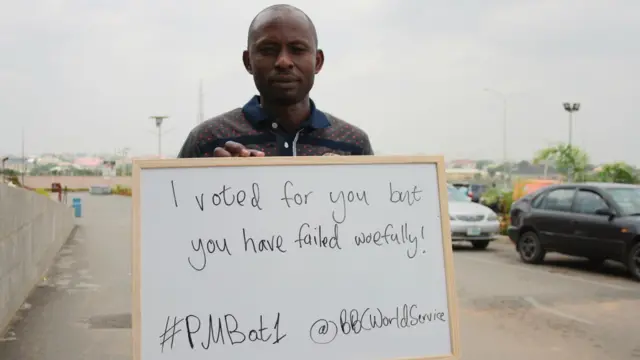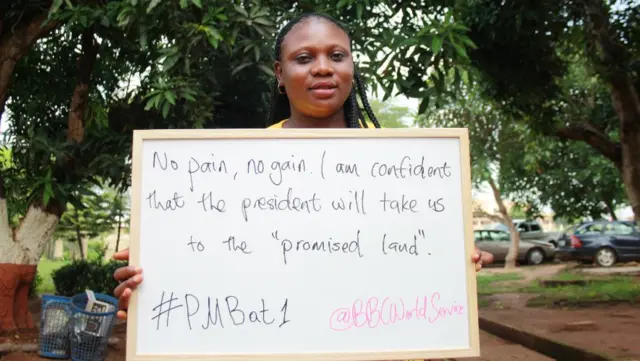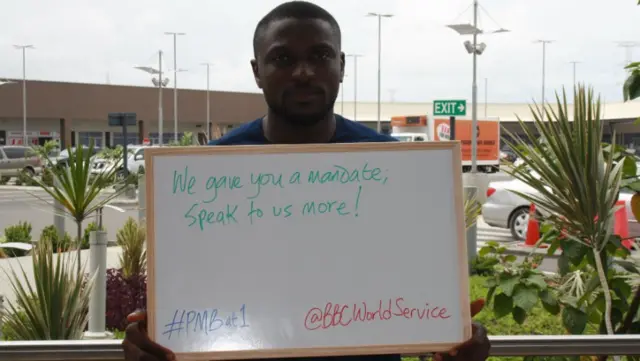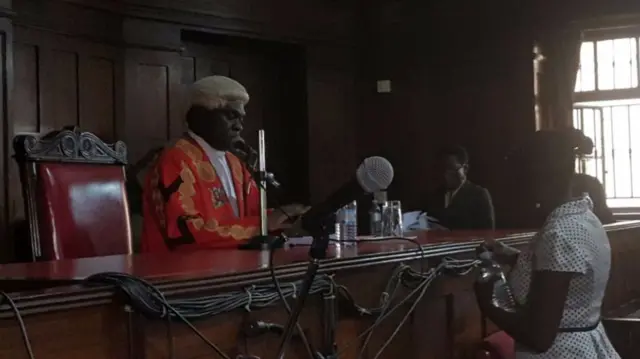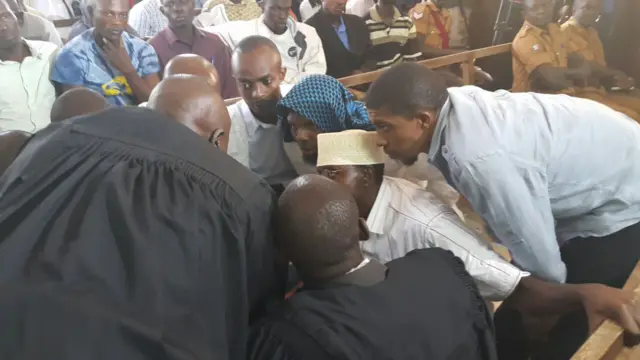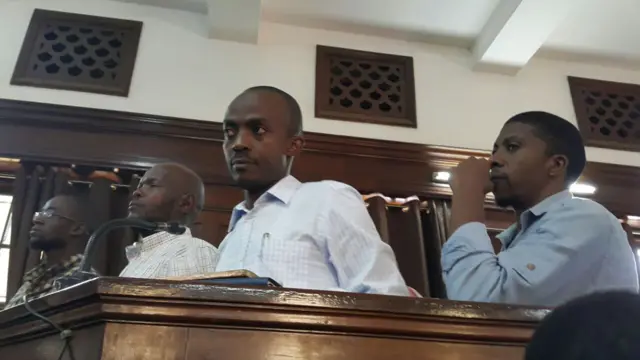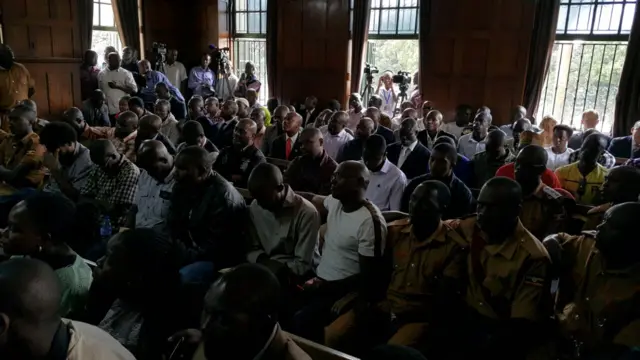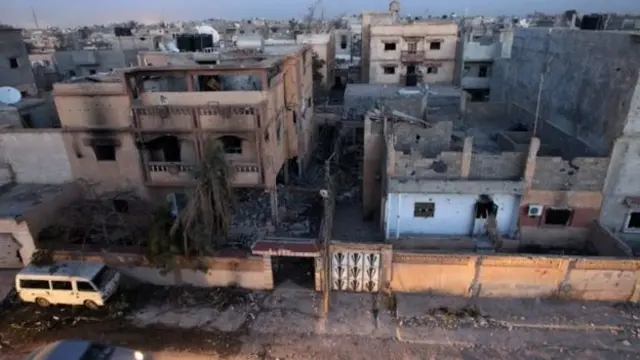Scroll down for Friday's storiespublished at 18:05
We'll be back on Monday
That's all from the BBC Africa Live page today. Keep up-to-date with what's happening across the continent by listening to the Africa Today podcast or checking the BBC News website.
A reminder of today's wise words:
Quote MessageThe death that kills one's contemporary is a proverbial warning."
A Yoruba proverb sent by Enochseun, Ekiti, Nigeria
Click here to send us your African proverbs.
We leave you with this image from our selection of the best pictures of the week.
It shows blind Ugandan boxer Bashir Ramathan, on the right, sparring with Ali, who puts a blindfold on to make things fair.
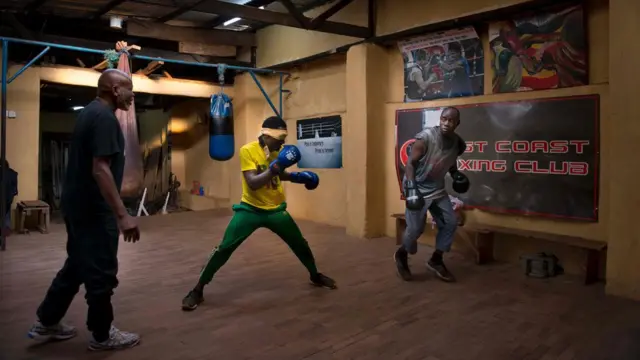 Image source, AFP
Image source, AFP